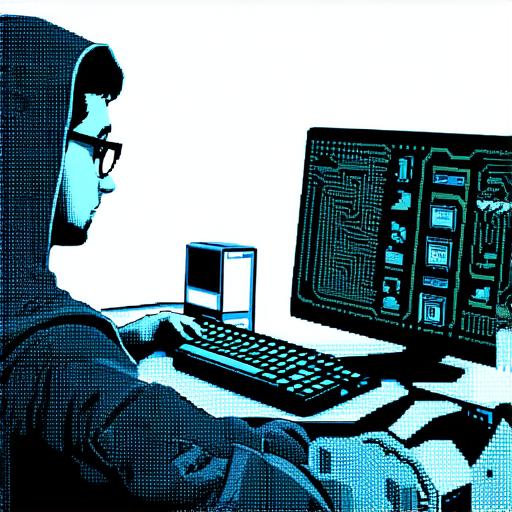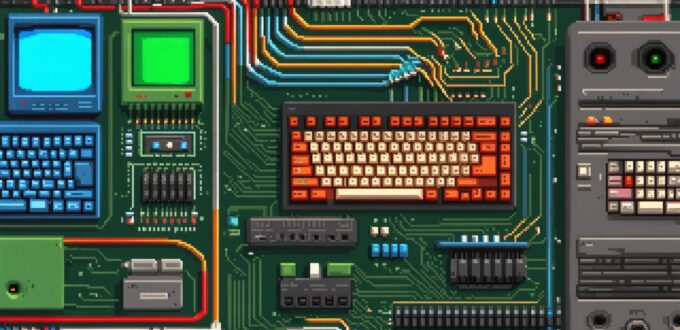Introduction
Have you ever stopped to consider why we call it "software"? It’s a term that we use every day, yet its origins are not as straightforward as one might think. In this article, we will explore the history and evolution of software, shedding light on the fascinating story behind this essential aspect of modern technology.
The Early Years
The concept of software can be traced back to the 1940s, when computer scientists began designing programs to run on machines. The first known example of software was a simple program called "A-0," which was written by John von Neumann and designed to control a nuclear reactor. This marked the beginning of a new era in computing, as programmers began to realize that they could create complex algorithms and simulations using computers.
The Birth of Operating Systems
As computers became more powerful and sophisticated, programmers needed a way to manage and organize their programs. This led to the creation of operating systems, which allowed users to run multiple programs simultaneously and perform basic tasks like file management and printing. One of the earliest operating systems was "OS/360," developed by IBM in the 1950s, which laid the foundation for modern computing.
The Rise of Application Software
Alongside operating systems, application software began to emerge as a crucial component of computer systems. These programs were designed to perform specific tasks, such as word processing, spreadsheet analysis, and graphic design. One of the earliest examples of application software was "Word," a text editor developed by Microsoft in the 1970s.

The Evolution of Software Development
As computers became more powerful and accessible, software development began to evolve rapidly. Programming languages like COBOL, FORTRAN, and Pascal were developed in the 1950s and 1960s, making it easier for programmers to create complex programs. In the 1980s, object-oriented programming (OOP) emerged as a new paradigm for software development, which allowed programmers to create more modular and reusable code.
The Impact of Software on Society
Software has had a profound impact on society, transforming the way we work, communicate, and interact with technology. The rise of the internet and mobile devices has made it easier than ever to access information and connect with people around the world. Social media platforms like Facebook, Twitter, and Instagram have revolutionized the way we share information and connect with others. Software has also transformed industries such as healthcare, finance, and transportation, making them more efficient and effective.
The Future of Software
As we look to the future, it’s clear that software will continue to play a critical role in shaping our world. Artificial intelligence (AI) and machine learning (ML) are already transforming industries like healthcare and finance
